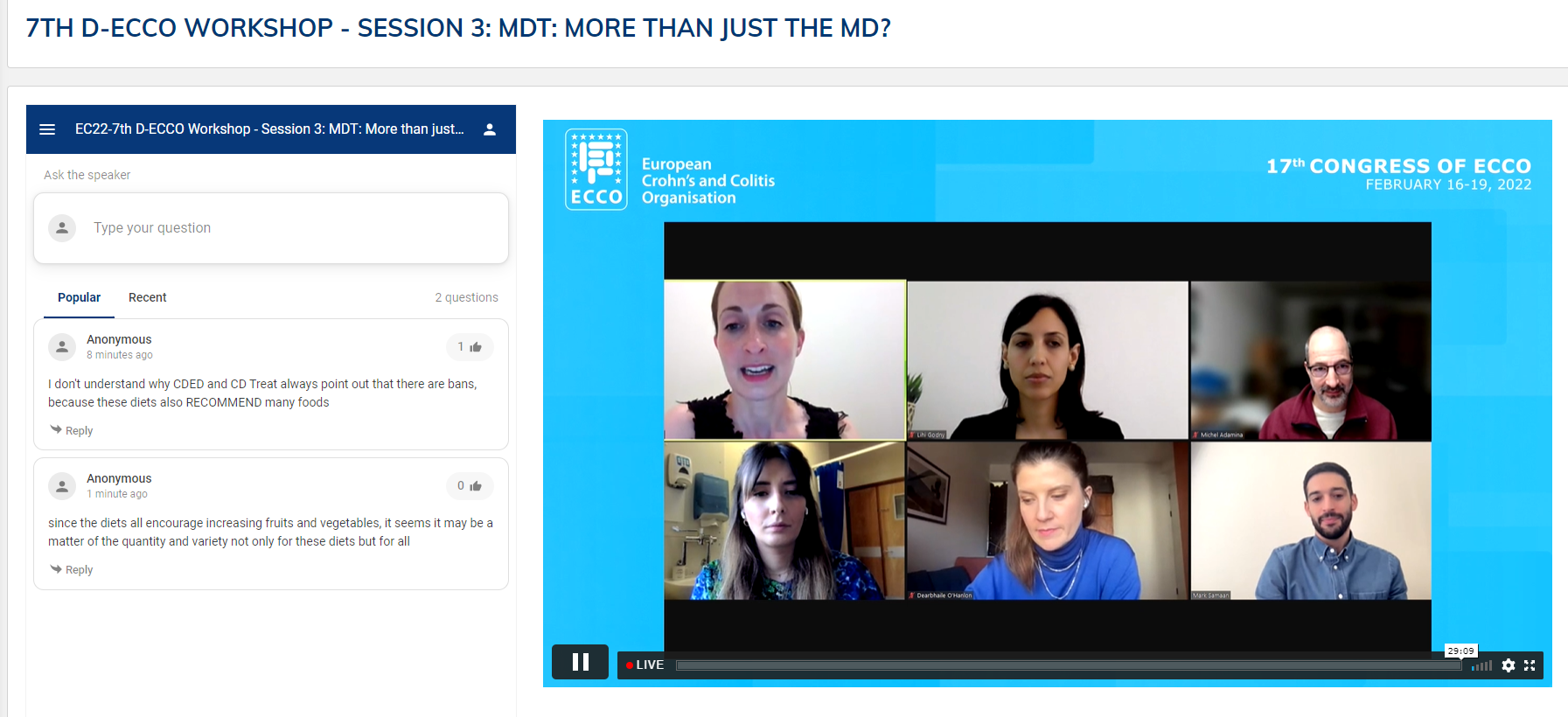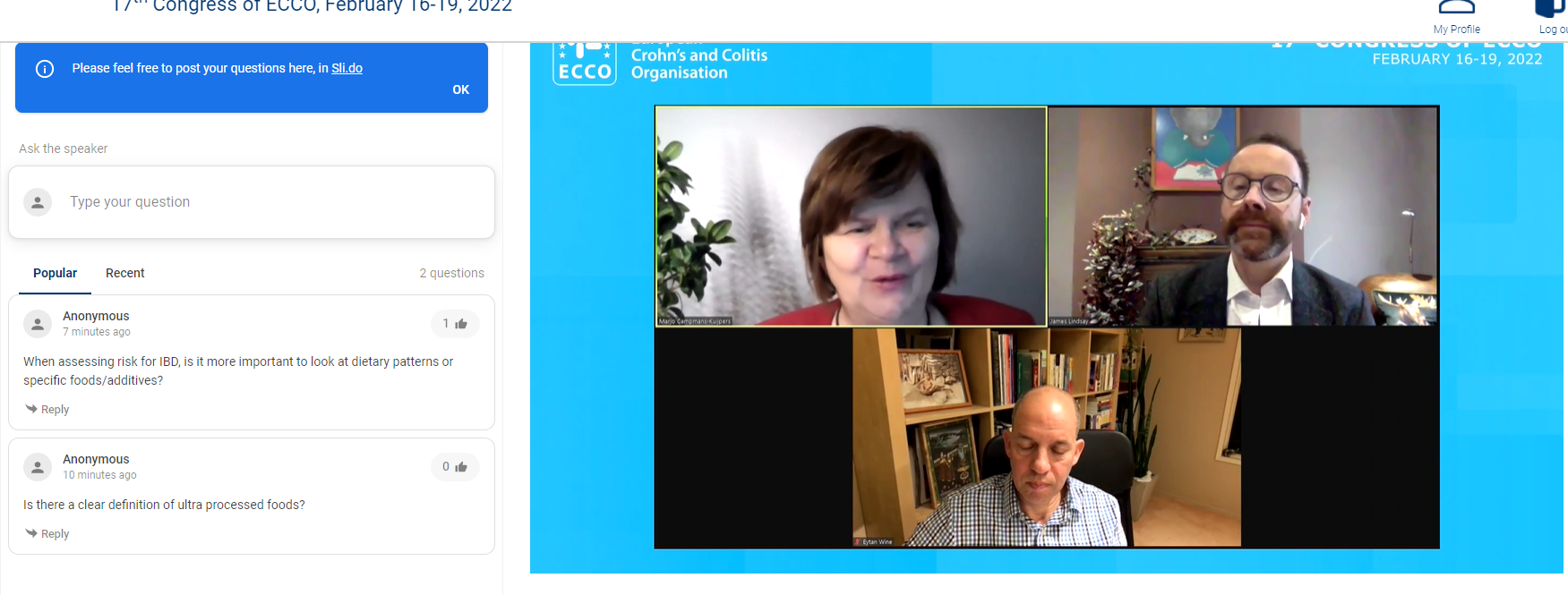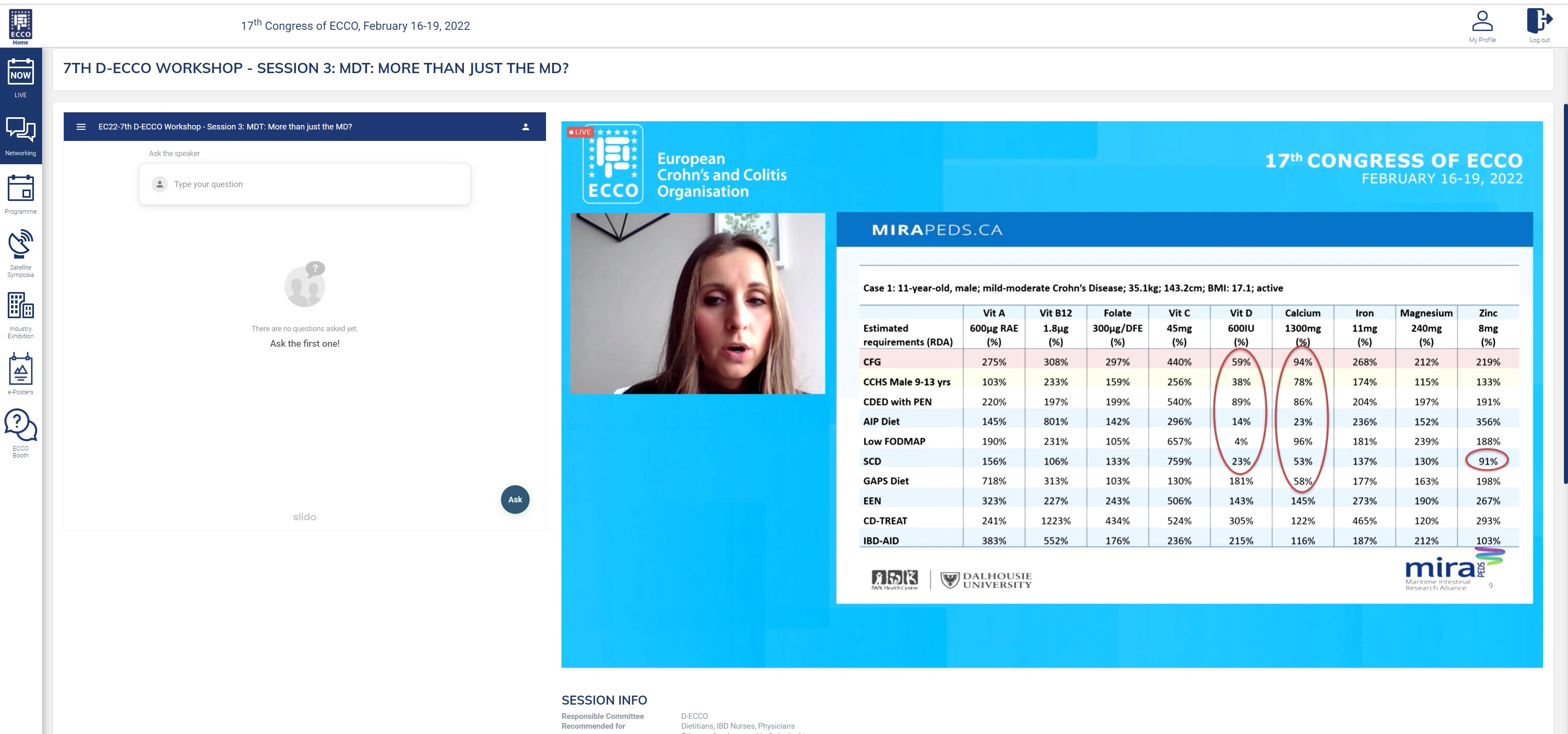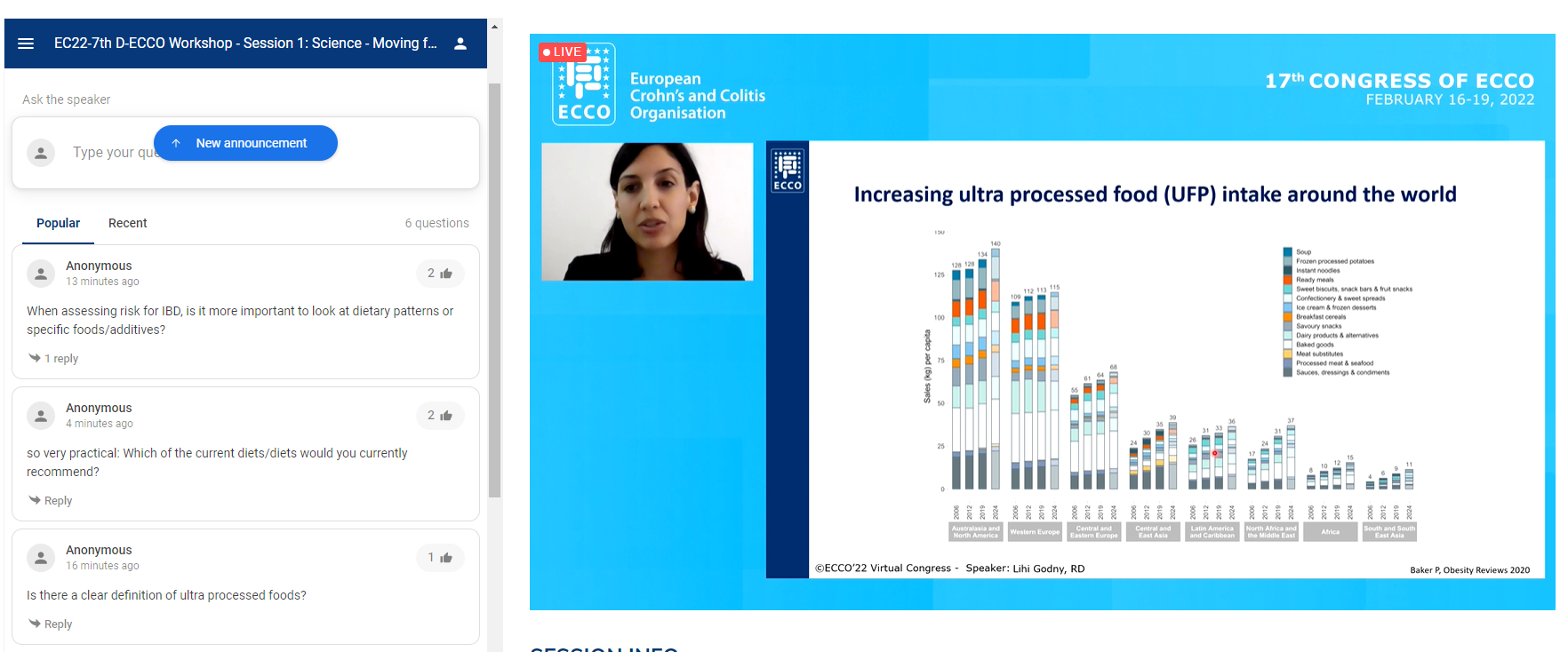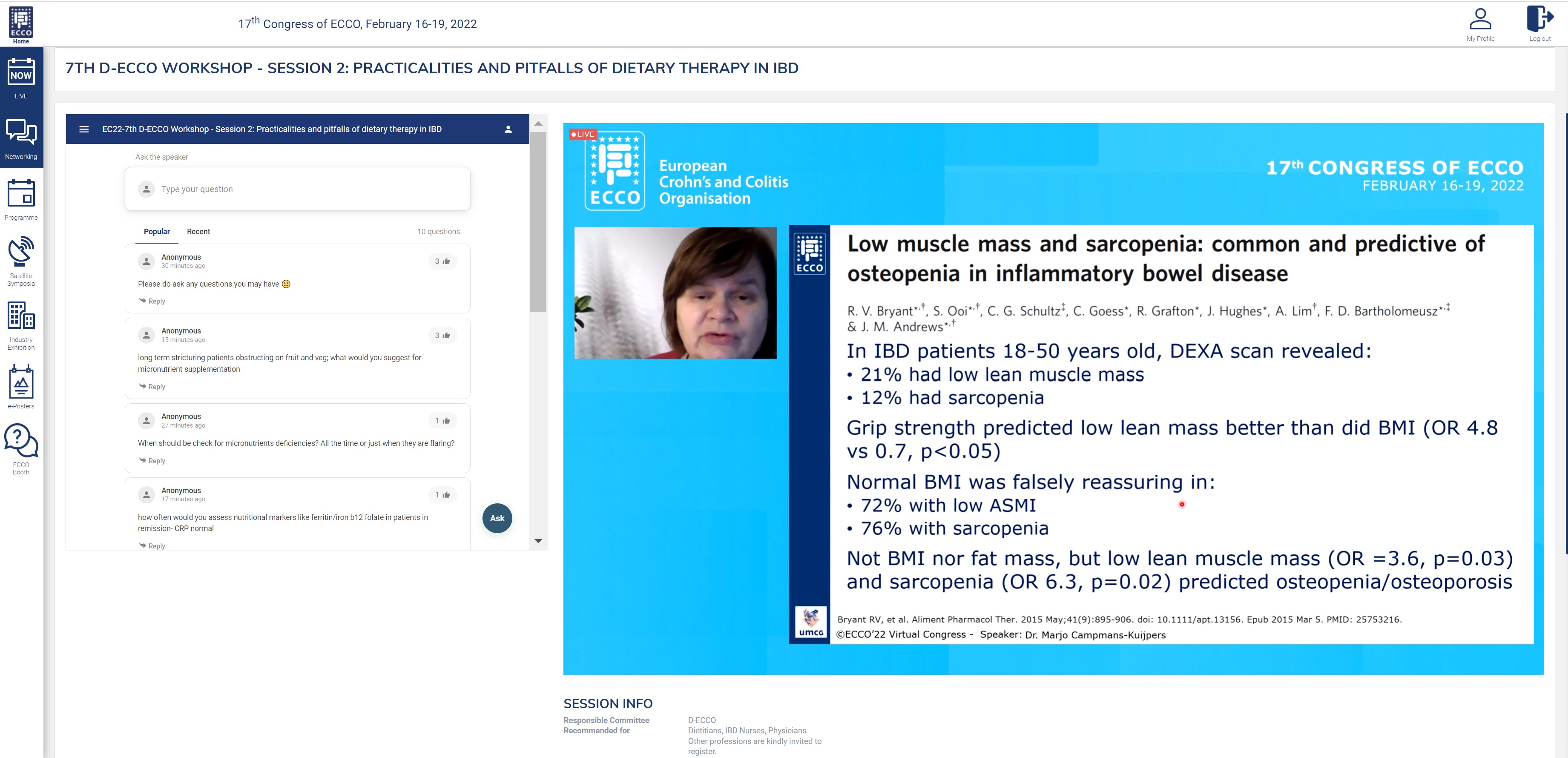Report on the 7th D-ECCO Workshop at ECCO'22
Lihi Godny, D-ECCO Chair
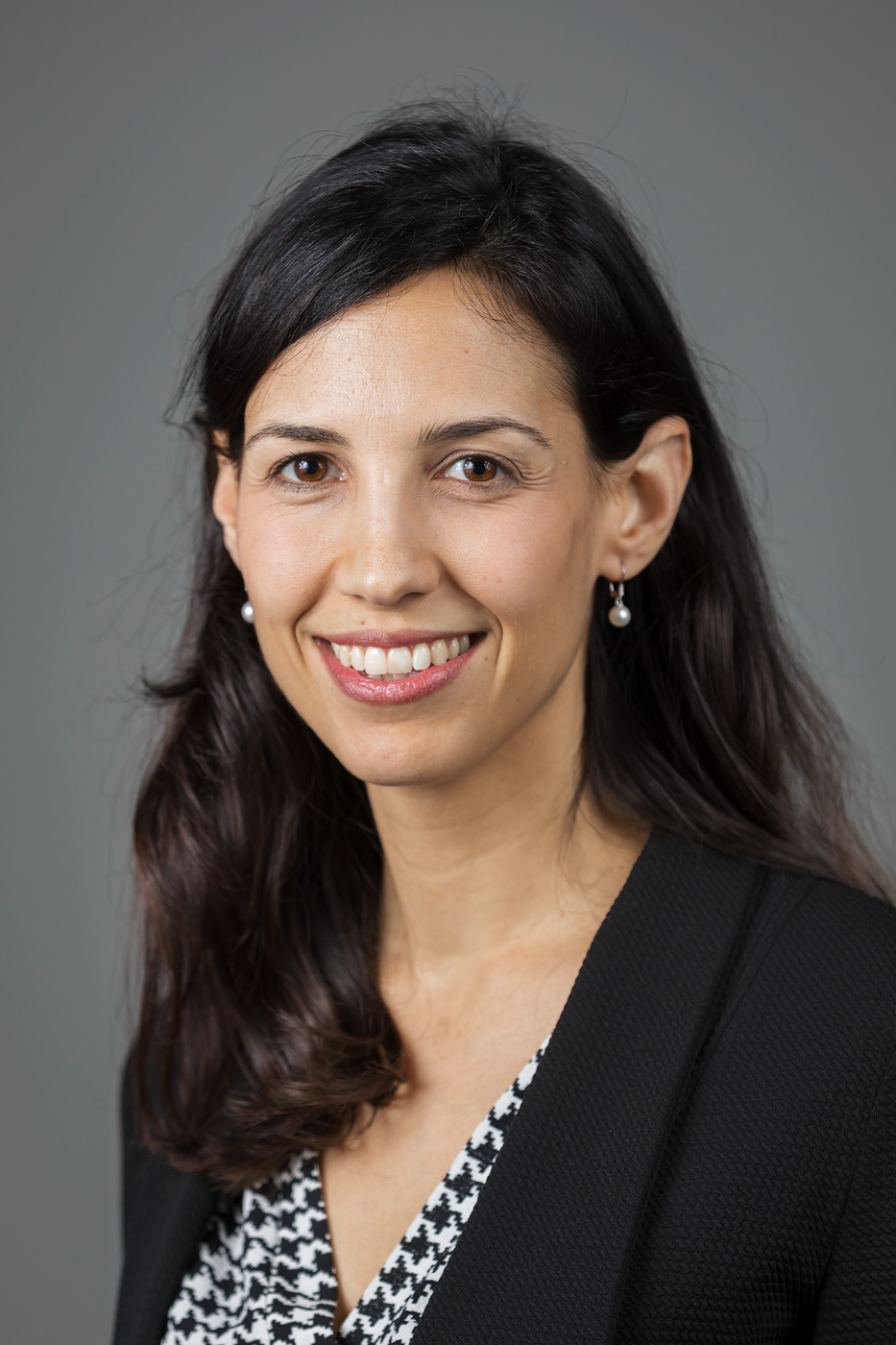 Lihi Godny Lihi Godny © ECCO |
As a part of the 17th ECCO Congress, the 7th D-ECCO (Dietitians of ECCO) Workshop was conducted virtually and included three sessions: (1) Science, moving from a causality in IBD; (2) Practicalities and pitfalls of dietary therapy in IBD; (3) MDT: More than just the MD? Case presentations and panel discussion.
The first session started with a comprehensive overview by James Lindsay (UK) of the epidemiological evidence that links diet to IBD. He discussed the strengths and weaknesses of epidemiological research on diet and IBD and highlighted the recent association between ultra-processed food (UPF) intake and IBD risk.
The next talk was given by me, Lihi Godny (Israel), and covered what can be learned about diet from across the globe. I focused on the potential role of the Mediterranean diet in the management and prevention of IBD and how it can be applied over different geographic regions.
Eytan Wine (Canada) discussed how we can solve the chicken and egg problem of whether diet affects IBD or IBD affects diet. He suggested ways to improve research methodologies, such as advancing dietary assessment, focusing on high-risk populations, conducting well-designed interventions and identifying better research models.
The scientific session was closed by an abstract presentation from Catherine Dong (Switzerland) entitled “Processed and ultra-processed food and risk of Inflammatory Bowel Disease in the European Prospective Investigation into Cancer and Nutrition cohort (EPIC-IBD)”.
Catherine Wall (New Zealand) opened the clinically focused session with a practical talk on micronutrient sufficiency in IBD. She provided an overview of the role of micronutrients such as vitamins B, C and D, methods for assessment and the importance of dietary education to promote sufficient micronutrient intake.
Marjo Campmans-Kuijpers (the Netherlands) gave an excellent overview of sarcopenic obesity in IBD, demonstrating that sarcopenia is present in overweight and obese IBD patients and is associated with disease complications. She recommends screening for loss of muscle mass and to ensure sufficient protein intake and physical activity in high-risk patients.
The final talk of this session, given by Dearbhaile O'Hanlon (UK), comprehensively covered the practicalities and pitfalls of dietary therapy. Many of the current dietary therapies in IBD focus on the restriction of certain foods, and this may affect food-related quality of life. She also highlighted the high prevalence of food avoidance, restrictive-eating behaviours, eating disorders and disordered eating in patients with IBD, and discussed how to assess, monitor and manage these in the clinic.
The interactive session started with the presentation of another selected abstract, entitled “Unpacking the different popular diets for paediatric Crohn's Disease – concerns around nutritional adequacy”, by Erin Carmody (Canada). Next, Emma Halmos (Australia) and I moderated case presentations and a panel discussion with the participation of Michel Adamina (surgeon, Switzerland), Mark Samaan (gastroenterologist, UK), Ana Ibarra (nurse, UK) and Dearbhaile O'Hanlon (dietitian, UK). This session nicely demonstrated the importance of interprofessional interactions and the multidisciplinary team in managing complicated IBD patients.
The 7th D-ECCO workshop was highly successful and provided an excellent overview of recent advances in the scientific and clinical aspects of dietary therapy in IBD.
I would like to take this opportunity to express our gratitude to Marjo Campmans-Kuijpers, who has stepped down as D-ECCO Chair, and Catherine Wall for their invaluable contributions to D-ECCO over recent years and to welcome our new D-ECCO Committee Members: Emma Halmos, a dietitian from Australia and a world leader in the field of dietary therapy in IBD, and Chen Sarbagilli, a dietitian from Israel with vast expertise in the dietary management of patients with UC. On behalf of the D-ECCO Committee, we are delighted to have you in our team and are certain that you will contribute greatly to our efforts to promote the important role of dietitians as part of the multidisciplinary team providing care for patients with IBD.
Browse through the gallery:
Pictures are subject to copyright © ECCO



